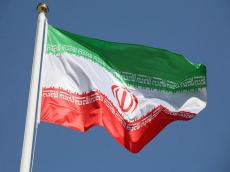Today.Az » World news » Iranian MP discusses importance of Vienna talks
23 July 2021 [14:55] - Today.Az

By Trend
A member of the Iranian Parliament announced the Islamic Republic of Iran has always intended to stay in JCPOA so that it will continue the Iran deal revival talks in the next administration. Iran has never withdrawn from any international agreement, Moinuddin Saeedi told Trend. "In my opinion, on the day of signing JCPOA in 2015, the necessary legal measures and predications should have been made, to prevent any damages by the other parties,” he added. Noting that it is important to admit that the Iran deal itself had major problems, he says that even now, it should be noted that if the legal issues are not carefully considered in Vienna Talks, the possibility of damage to the country is still high. Saeedi said that apart from these arguments if Iran wants to achieve reasonable economic growth, it needs foreign investment, which will not be achieved by sanctions. He stressed that the economic pressures have had a direct impact on people's lives. Saeedi pointed out that in order to succeed in the JCPOA revival negotiations, the three components of respect, wisdom, and expediency must be considered. "These three points should be considered not in JCPOA, but in all international relations, especially with neighboring countries,” he noted. "The diplomacy is based on cost-benefit analysis,” Saeedi said adding that flexibility in negotiation with the approach of protecting the interests of the country can be considered. Saeedi went on to emphasize that the negotiating team must be knowledgeable and experienced. In January 2016, JCPOA was launched between Iran and the P5+1 group (US, Russia, China, UK, France, and Germany) in connection with Iran's nuclear program. In May 2018, the US announced its withdrawal from the deal and imposed sanctions on Iran in November of the same year. To preserve the agreements reached as part of the JCPOA, the European signatories of the deal started in January 2019 that a financial mechanism for maintaining trade with Iran called INSTEX was formed. On May 8, 2019, Iran announced that it had ceased fulfilling its commitments regarding the sale of over 300 kilograms of uranium, as stated in the deal, basing its decision on the other signatories that have not fulfilled their obligations. On July 7, Iran announced that it will not be fulfilling its commitments regarding the enrichment of uranium at 3.67 percent and the reconstruction of the Arak Heavy Water Reactor Facility as stated in the deal. Iran announced that it will enrich uranium using next-generation centrifuges and will not mix it with the enriched uranium residues as part of the third step of reducing commitments in JCPOA on Sept.5. On Nov. 5, 2019, Iran announced that it took the fourth step in connection with reducing its commitments to the nuclear agreement. So, uranium gas is being pumped to the centrifuges at the Fordow Fuel Enrichment Plant. On Jan.2020, Iran took the last fifth step in reducing the number of its commitments within JCPOA. As reported, in late 2020, the Iranian parliament has decided to implement a strategic plan to tackle the sanctions, citing the non-implementation of the Joint Comprehensive Plan of Action (JCPOA) signed between Iran and six countries and the imposition of sanctions on Iran. According to the decision of the Iranian parliament, as of February 23, Iran suspended the implementation of additional steps and an additional protocol provided for in the nuclear deal. The US imposed new sanctions on Iran in November 2018. Over the past period, the sanctions affected Iranian oil exports, more than 700 banks, companies, and individuals.
|